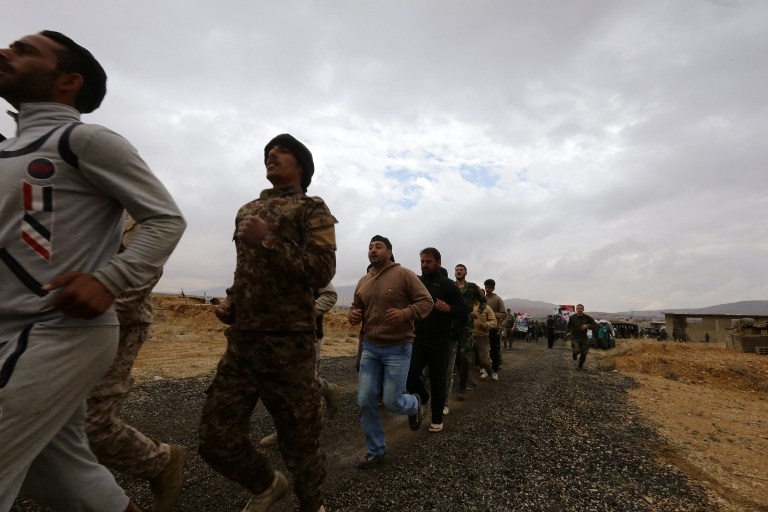Rebel groups freeze participation in Syrian peace talks

Ten Syrian rebel groups said on Monday they had frozen any talks about their possible participation in Syrian peace negotiations being prepared by Moscow in unless the Syrian government and its Iran-backed allies end what it said were violations of a ceasefire.
In a statement, the rebels also said any territorial advances by pro-government forces would end the fragile ceasefire, brokered by Russia and Turkey, that came into effect on Friday.
"The regime and its allies have continued firing and committed many and large violations," said the statement signed by the mainly moderate rebel groups operating under the umbrella of the Free Syrian Army (FSA).
The UN Security Council on Saturday gave its blessing to the ceasefire deal, which is slated to be followed by peace talks in the Kazakh capital, Astana.
Free Syrian Army groups said the main violations were in an area northwest of Damascus in the rebel-held Wadi Barada valley, where government forces and the Iran-backed Lebanese Hezbollah group have been trying to press advances in an ongoing campaign.
"As these violations are continuing, the rebel factions announce... the freezing of all discussion linked to the Astana negotiations," the statement added.
Rebels say the army is seeking to recapture the area, where a major spring provides most of Damascus's water supplies and which lies on a major supply route from Lebanon to the Syrian capital used by Hezbollah.
Like previous Syria ceasefire deals, the latest agreement has been shaky from the start, with repeated outbreaks of violence in some areas, but it has largely held elsewhere.
The rebel groups questioned Russia's ability to force the Syrian government and its allies to abide by the terms of the ceasefire deal.
The rebels said they "respected the ceasefire across the whole of Syria... but the regime and its allies have not stopped shooting and have launched major and frequent violations, notably in the [rebel] regions of Wadi Barada and Eastern Ghouta".
For the past two weeks, even before the start of a nationwide truce brokered by Ankara and Moscow, Syria's air force has launched almost daily bombing raids on Wadi Barada, some 15km from Damascus.
On Monday, the Syrian army backed by air strikes and artillery fire advanced as it battles to capture the area, which is key to the capital's water supply, the Syrian Observatory for Human Rights said.
"Regime forces and fighters from Lebanon's Hezbollah group are advancing in the region and are now on the outskirts of Ain al-Fijeh, the primary water source in the area," said Rami Abdel Rahman, director of the monitoring group.
Stay informed with MEE's newsletters
Sign up to get the latest alerts, insights and analysis, starting with Turkey Unpacked
Middle East Eye delivers independent and unrivalled coverage and analysis of the Middle East, North Africa and beyond. To learn more about republishing this content and the associated fees, please fill out this form. More about MEE can be found here.




